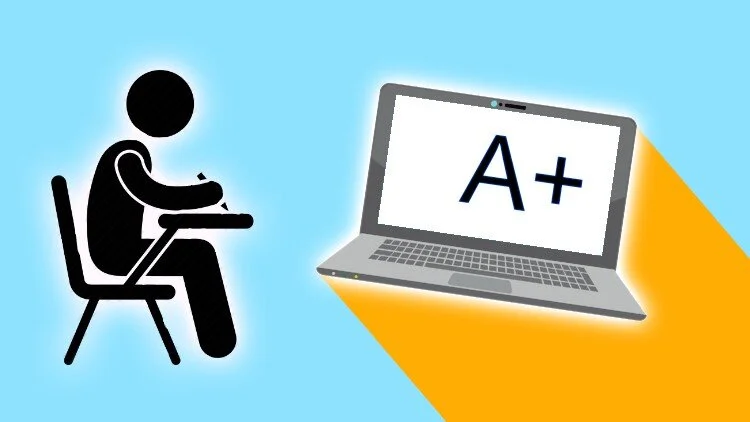We love our children. Yet, the goal for our teens is to become self-sustaining adults, who move out of our house, and exude confidence and success without us. Right? With the academic curriculum demands of the day, it is hard to prioritize additional skills and knowledge that ensure they have been introduced to what matters the most—LIFE SKILLS.
The fact is, many basic “adulting” concepts can be missing in our youth and we don’t always know what our children don’t know. The easiest way to incorporate some life skills into daily activities is to have a QOD (Question of the Day). Questioning allows review of life skill topics, in small doses, to ensure there are no gaps. Then teaching or re-teaching, as needed, can occur. (Plus, you never know what other path of knowledge these questions will take you on.)
Turn the following 9 life skill topics into questions and get started on helping teens avoid frustration for not knowing …
1. Making Introductions
Most teens know that introducing oneself to someone involves a greeting, stating their name, and ending with a pleasantry (e.g., Hi! My name is Beth Carey. So, nice to finally meet you). However, your teen may not know the rule for introducing others is to always say the most important or higher-ranking individual’s name first. (e.g., Dad, I would like you to meet my friend Emily).
In the United States, good eye contact and a handshake would follow (or elbow bump currently) and then “small talk” (polite conversation about unimportant matters). Small talk is not something that comes naturally for any generation so don’t hesitate to practice this task.
2. Reading an Analog Clock, a Ruler, and Telling Military Time
You may chuckle here, but have you checked these skills with your teenager lately? Our digital world has created a generation (or two) that cannot read a face clock, yet alone tell military time (like the rest of the world). And ruler reading is good to the 1/4, 1/2, 3/4 markings, but if you review 7/8ths or 3/32nds you could be surprised. Tackle each task on separate days.
3. Ability to do Tasks related to General Home Life
change a furnace filter
change bed sheets & make a bed
clean a bathroom, the kitchen, & a window (w/out smears)
do laundry (include emptying lint filter)
handle an overflowing toilet & use a plunger
load and run dishwasher
locate & turn off main water valve, locate main power breaker box & reset breakers o plan & make a meal
set a table properly
sew on a button
4. Dining Protocols
Most teens love eating, but they need etiquette knowledge beyond eating out of the drive-thru bag to avoid embarrassment when eating with others (especially on special nights like proms and weddings). Things like napkin placement, when to start eating, passing food guidelines, how to indicate when you are finished with a meal, how to tip properly, and so on.
5. Job Hunting
Adolescents often want to work but get intimidated by the process. Making a list of job lead sources (signs, company websites, employment agencies, school placement offices, etc.) and identifying interests and skills a person has to offer an employer is a great way to start. Review rules for filling out an application, appropriate interviewing attire (hint: one step above company dress code), practice/plan for common interview questions, and create a resume. Include skills for writing a thank you note after an interview.
6. Writing Thank You Notes
Notes for gifts, dinner engagements, condolence gestures, or any kindness shown to a person needs to happen and ASAP, as you know. But does your adolescent know to include what they are thankful for and a related piece of info to the note? Do they realize that electronic words of gratitude are better than nothing, but handwritten notes are better? (Check their ability to address an envelope properly too.)
7. Managing Money
Start your kids on fiscal independence by helping them take control of their own money. Click here to read why every teen needs a bank account. A good and easy start is the Greenlight app. Discuss budgeting, banking, saving, using Venmo/Paypal/Zelle, writing & cashing checks, balancing an account, and building good credit. After all, “You must gain control over your money or the lack of it will forever control you”—Dave Ramsey.
8. Rules of Social Decorum when Online and Texting
There are several guidelines to know under this topic, but the #1 rule for cell phone use is to step away from others as no one wants to hear your conversation or watch you text.
When it comes to online decorum, avoid personal, serious, and emotional topics … save those for in person dialogue.
9. Ability to do Tasks related to Car Maintenance
fill car with gas & pay
check tire pressure & change a tire
add wiper fluid & change blades
jump a dead car battery with cables
check fluids
———————————————————————————————————————————
We are here to support! As we handle the academics, this gives you time to ensure they are ready for “the world”. See our blog here for more info on tutoring and test prep during the pandemic.









